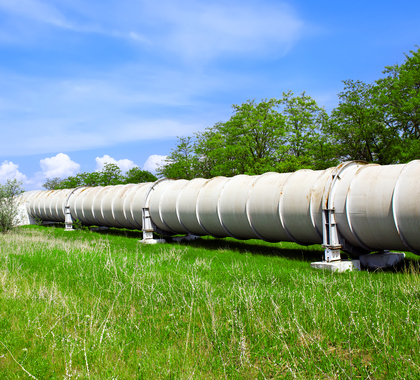The energy company building a 600 mile natural gas pipeline stretching from West Virginia to North Carolina said a federal appeals court panel’s decision to invalidate a key environmental permit will not halt construction.
Defining ‘Incidental Take’
Environmental groups opposing construction of the Atlantic Coast Pipeline (ACP) sued to halt it, claiming it would harm six endangered species in violation of the 1973 Endangered Species Act. The six species are the clubshell mussel, the Indiana bat, the Madison Cave isopod, the northern long-eared bat, the Roanoke logperch, and the rusty patched bumblebee.
A three-judge panel of the U.S. Court of Appeals for the Fourth Circuit, located in Richmond, Virginia, ruled the U.S. Fish and Wildlife Service was too vague in setting the “incidental take limit” for the six species, which live along segments of the proposed pipeline in West Virginia and Virginia. The panel invalidated the permit, potentially halting construction until Dominion Energy, the company behind the $6 billion ACP, secures a new incidental take permit that will satisfy the court’s concerns.
Dominion says it will continue pipeline construction on segments not affected by the ruling and will delay construction on 21 miles of pipeline in West Virginia and 79 miles in Virginia until a revised permit is issued.
ESA Stalking Horse?
The effect of the pipeline on wildlife is not the main concern of the groups opposed to the ACP, says Mike Thompson, president of the Thomas Jefferson Institute for Public Policy. They want the pipeline stopped because it because it would facilitate use of natural gas, which they oppose, Thompson says.
“Most of the animals mentioned in this effort are not actually listed as endangered species on the Endangered Species List at all,” Thompson said. “Four of the six species are in classifications—such as ‘threatened’ or ‘vulnerable’—that require lesser levels of protection, and there is limited evidence the pipeline poses a threat to them.
“The environmental groups opposed to this pipeline are using the Endangered Species Act as their most recent roadblock,” said Thompson. “Yet they offer no alternatives for supplying reliable and affordable energy for the economic needs of Virginia’s future.”
Thompson says the pipeline, which will carry natural gas from the Marcellus Shale in Pennsylvania and West Virginia to North Carolina, is critically important to the region’s economy.
“A growing economy needs reliable and affordable energy, and the Atlantic Coast Pipeline will provide a great deal of that much-needed electricity to eastern Virginia and North Carolina,” Thompson said. “Hopefully, reason will ultimately prevail in this ongoing saga.”
Joe Barnett ([email protected]) writes from Arlington, Texas.





